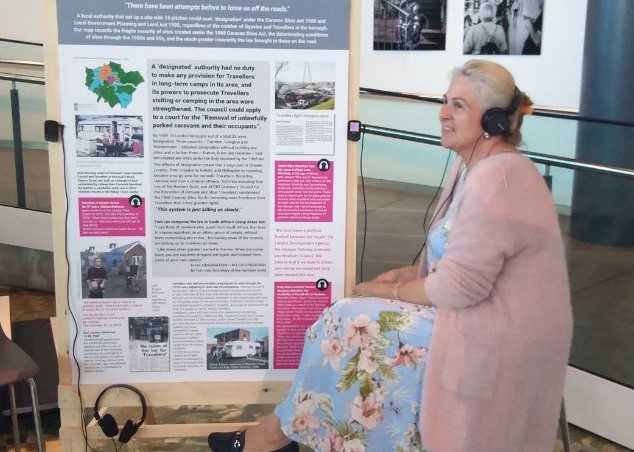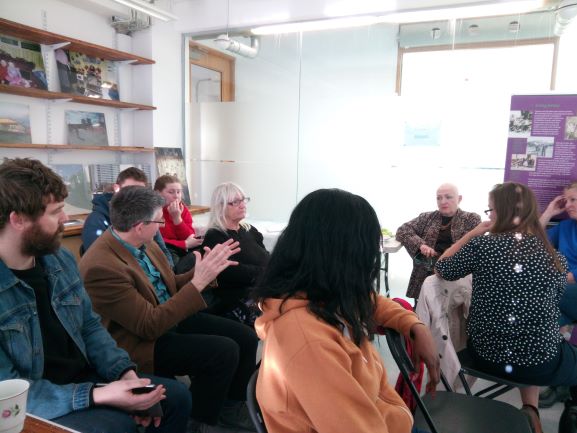Generations of Romany Gypsies, Irish Travellers and Travelling Showpeople have lived and worked in London. Yet their unique contributions to the capital’s social, economic and cultural life remains widely unknown. This project aims to make visible their presence and experiences of the city over the last few hundred years, identifying:
- Memories of place – traditional stopping places, travelling routes, local authority caravan sites that have been lost and other places of significance for the community.
- Lived experiences – individual and family histories and memories related to travelling, living and working in London.
- Practices – economic and cultural activities; social infrastructure; decisions and procedures affecting Gypsies and Travellers (e.g. Olympic site relocations, borough-wide injunctions etc).
Diverse heritage material gathered by our partner, the charity London Gypsies and Travellers, has been made accessible through the first interactive, online maps of London. Interviews, archives, and personal documents are shared with the community and wider public through these maps:
- London from the 19th to the mid-20th Century. Yards, commons and green corridors. Examples of the relationship between the routes -through principal arteries and “green corridors” between London and the surrounding counties- and the camps and stopping places along the city.
- Project-London from the 70s. Camps, evictions and the politics of sites. This map shows how London’s Romany Gypsies and Irish Travellers became active in the fight for sites following the 1968 Caravan Sites Act; it also records the fragile security of sites created under such Act, the deteriorating conditions of sites through the 1980s and 90s, and the much greater insecurity the law brought to those on the road.
Our role
Mapping for Change is responsible for developing the interactive Community Maps to host the data and the materials collected through the research activities. To co-create bespoke maps and icons, consultation and training workshops with the project team and other community members are delivered. We are also responsible for Evaluating the project through qualitative (e.g. interviews to participants and focus groups) and quantitative methods to gather this evidence (e.g. stats about the maps use and social media reach).
Partners
We delivered this project in partnership with London Gypsies and Travellers, between March 2018 and December 2019, with funding from the National Lottery Heritage Fund. The two organisations have been working collaboratively since 2017 on the project ‘Mapping the Pathway to Equality’, which created an evidence base regarding Gypsy and Traveller communities in London to support more inclusive policy making.
Related Projects
Design for Wellbeing
Design for Wellbeing is a multidisciplinary research project funded by the Economic and Social Research Council. The project aims to investigate ‘community severance’; the concept that major transport infrastructure, such as busy roads, can negatively influence elderly people’s physical and psychological wellbeing, by segregating their community and restricting their mobility.
Science in the City 2
The City of London Corporation and Mapping for Change are teaming up once again to conduct a citizen science project to monitor air quality in the capital city and evaluate the recent changes made in the area. The project will seek to understand the impacts that public participation and citizen science have on environmental issues.
InSPIRES
InSPIRES is a EU-funded project which aims to address the information gap that vulnerable demographics can hold about the impact that air pollution has on their health. Mapping for Change works with a school in London, whereby parents and pupils will have the opportunity to monitor particulate matter and nitrogen dioxide pollution levels in and around their homes.

